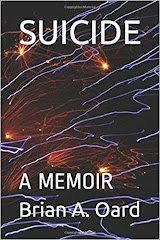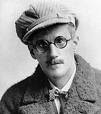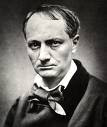Because I quoted Fredric Jameson in my last post, I feel compelled to say something about his oft-derided prose style. Jameson, America's best-known Marxist literary theorist and critic, is usually mentioned in polemics attacking the turgidity of academic writing. Exhibit A is sometimes the first few sentences of his Postmodernism, or, The Cultural Logic of Late Capitalism:
It is safest to grasp the concept of the postmodern as an attempt to think the present historically in an age that has forgotten how to think historically in the first place. In that case, it either "expresses" some deeper irrepressible historical impulse (in however distorted a fashion) or effectively "represses" and diverts it, depending on the side of the ambiguity you happen to favor. Postmodernism, postmodern consciousness, may then amount to not much more than theorizing its own condition of possibility, which consists primarily in the sheer enumeration of changes and modifications.
OK, that's pretty tough. It's argued on a highly abstract level, but it's not beyond the understanding of anyone who gives it a college try. I suspect most non-academic readers stumble over the somewhat jarring phrase "think the present historically," but this use of 'think' to mean 'think about' or 'conceptualize' is Standard Academic English. The reader should also know that whenever a Marxist like Jameson uses the words 'history' or 'historically' he is almost always referring to the Marxist dialectical theory of history, in which artworks and ideologies 'reflect,' by way of a highly complex system of mediations, the socioeconomic facts of their historical moments. (Much of what is admittedly dry and tedious in Jameson's works--I'm thinking specifically of the long longueurs in The Political Unconscious--is an attempt to rigorously work out the mediating factors.) Finally, it's important to note the ironic tone of the above passage, signalled most obviously by the quotes around 'expresses' and 'represses' and less obviously by the passage's third word. For a serious critic, the 'safest' way to grasp something is usually the worst way. So this entire passage, which expands upon the 'safest' interpretation of postmodernism, exists under a sign of extreme irony.
When these three factors are taken into account, the notorious passage becomes fairly understandable. But even if the reader fails to grasp it, the sentences that follow make these opening lines more clear. Interestingly, I have never seen any of Jameson's critics quote the entire passage. Here is the rest of it:
Modernism also thought compulsively about the New and tries to watch its coming into being (inventing for that purpose the registering and inscription devices akin to historical time-lapse photography), but the postmodern looks for breaks, for events rather than new worlds, for the telltale instant after which it is no longer the same; for the "When-it-all-changed," as Gibson puts it, or, better still, for shifts and irrevocable changes in the representation of things and of the way they change. The moderns were interested in what was likely to come of such changes and their general tendency: they thought about the thing itself, substantively, in Utopian or essential fashion. Postmodernism is more formal in that sense, and more 'distracted,' as Benjamin might put it; it only clocks the variations themselves, and knows only too well that the contents are just more images.
Thus Jameson presents, by means of a simple contrast, an explanation of what he means by postmodernism's contradictory effort to 'think the present historically.' Taken in context, the opening lines are not nearly so difficult as they appear when wrenched out of it. This, as I insinuated above, is probably why the rest of the passage is never quoted by critics of academic writing. To indict Jameson on the basis of his first few sentences is nearly as absurd as accusing Joyce of infantilization on the basis of the opening lines of A Portrait of the Artist as a Young Man.
I spent the past week reading Jameson--The Prison-House of Language, The Political Unconscious, some of the essays in The Modernism Papers--and I found him to be a much better and clearer writer than his critics would have us believe. If they can quote selectively, so can I. Here is Jameson at his best:
The history of thought is the history of its models. Classical mechanics, the organism, natural selection, the atomic nucleus or electronic field, the computer: such are some of the objects or systems which, first used to organize our understanding of the natural world, have then been called upon to illuminate human reality. -- The Prison-House of Language
[T]here are no preexisting laws that govern the elaboration of the novel as a form: each one is different, a leap in the void, an invention of content simultaneous with the invention of the form. -- The Prison-House of Language
...History is what hurts, it is what refuses desire and sets inexorable limits to individual as well as collective praxis, which its "ruses" turn into grisly and ironic reversals of their overt intention. -- The Political Unconscious
Now, in the catastrophe of the postmodern, most of these canonical groupings--like the old-fashioned tableaux of nineteenth-century or seventeenth-century paintings--have disintegrated, leaving the surviving figures--Joyce, Proust, Kafka--visible like the occasional lone high-rise in a landscape of rubble. -- The Modernism Papers
The canvasses [of De Kooning] give me proof of the fragmentation of the modern senses and of the modern body. In the thinking part of my mind, I know where this fragmentation comes from; Schiller, Marx, Lukacs, Weber, tell me how the development of capital enforces a kind of psychic "division of labor," the advanced form of which can be observed in just this reification and autonomization of the various senses from one another. In front of the paintings, however, all I know is that the eye finds a space of sheer colored paint before it, in which it can lead a life of its own, beyond hearing and taste, and beyond the clock time of everyday life. -- The Modernism Papers
These examples are all perfectly clear and comparable in their lucidity to the prose of Bertrand Russell or Isaiah Berlin or Richard Rorty. With so many truly atrocious academic writers out there, it's time to stop using Jameson as a whipping boy.
That said, I must state that I prefer my Jameson bottled, not booked. I'm raising a shot glass to Marxy Fred right now.
Sunday, January 16, 2011
Subscribe to:
Post Comments (Atom)










No comments:
Post a Comment